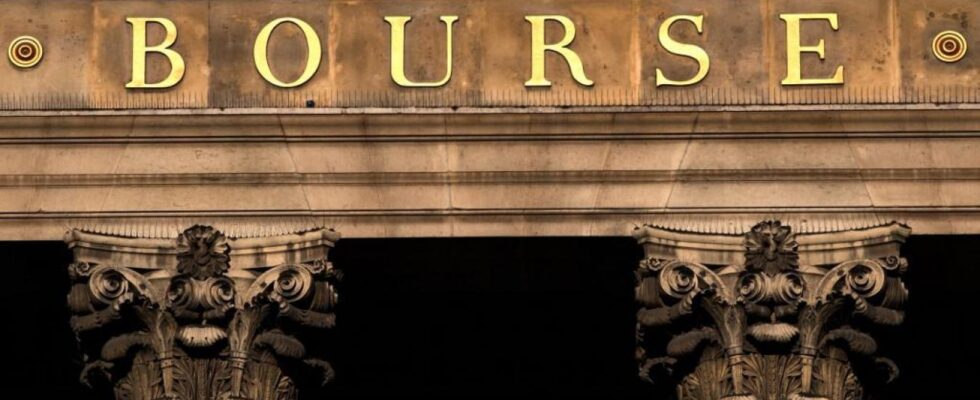(BFM Bourse) – As we did last November, we asked S&P Global Market Intelligence to compile the list of the most “shorted” stocks on the second most important index in Paris, namely the SBF 120 The ranking still has its share of surprises.
Short selling remains a stock market operation to be reserved for professionals. We explained in detail in a previous article why individuals should absolutely not risk it.
This practice involves betting down on a stock by borrowing the stock (in return for rent) from an investor who owns it. The operator carrying out this short sale hopes that the title will fall, then buying back the action to return it to its owner and thus generate the capital gain.
Gotham City Research has been in the headlines lately by betting low on SES-imagotag. The famous short seller then published a vitriolic research note, accusing the company of accounting irregularities, which the group strongly denied.
Beyond this specific case, which major French stocks are the most targeted by these short-sellers? The most reliable data in this area is compiled by S&P Global Market Intelligence, the benchmark player.
At the request of BFM Bourse, this data specialist belonging to S&P established a ranking of the SBF 120, as last November. The measurement of short selling is via the percentage of outstanding capital that is lent. Note that these data, displayed by the infographic below, were stopped on June 23rd.
Declining interest from short sellers
A first lesson is that interest from short sellers seems to have waned since our last update last fall. To enter the “top 10” of the most short-sold stocks, it was then necessary to have more than 8% of its capital loaned against barely 5.5% now (with Saint-Gobain). The bullish phase experienced by the entire market since the start of the year – the SBF 120 gaining more than 13% since January 1 – may have complicated the task of “short sellers” by forcing them to unwind their positions.
In terms of the ranking, it is the satellite operator Eutelsat which takes first place with 15.62% of the capital. “It is not for us to comment on the intentions of investors or estimates of market positions,” reacted the company, contacted by BFM Bourse. “We remain confident in our ability to carry out the merger project (with the British OneWeb, editor’s note), which represents a change of equity story (the story that the company tells to please the market, to simplify editor’s note) and where we see real potential for long-term value creation,” she added.
According to concordant market sources, it is this proposed 50-50 merger between Eutelsat and OneWeb, announced in the summer of 2022, which seems to be worrying investors and arousing the interest of short sellers. Until this announcement, the French operator presented the market with an “equity story” with activity certainly in decline but coupled with strong cash generation. Although it should prove beneficial in terms of medium-term growth, this merger project has somewhat changed the situation. Eutelsat has also decided to suspend the dividend for the 2022-2023 financial years (Eutelsat closes its accounts at the end of June), 2023-2024, and 2024-2025. The group’s cash will thus be used as a priority to finance the deployment of the second generation of OneWeb satellite constellations, called Gen-2, the total cost of which is estimated at 4 billion dollars with a start of development in 2024. Its commercial launch is scheduled for early 2028.
In a note published in November, Credit Suisse explained that it had “difficulty seeing any value creation for Eutelsat shareholders via the merger”, which it considered dilutive for the group. It is true that OneWeb was in loss in terms of gross operating income (Ebitda) of nearly $200 million over the twelve months ended at the end of September 2022, aiming for balance in its fiscal year 2025. Unlike Eutelsat which posted an impressive EBITDA margin (74.8%) over its last financial year. The group expects the merger to deliver medium to long-term double-digit growth in revenues and EBITDA.
Alstom has raised the bar
Behind Eutelsat, the second place is occupied by the distributor Carrefour (11.45%), which is surprising given the group’s recent good publications, but may explain why, as Morgan Stanley recently pointed out, the action is moving at such a cheap price. The American bank – which has a positive opinion on the title – noted however that the market seemed “skeptical” on the execution of the strategic plan of the distributor.
The podium is completed by the operator of shopping centers Unibail-Rodamco-Westfield (11.12%). The group is seeking to reduce its debt through asset disposals in a market environment that is not necessarily obvious given the rise in interest rates. However, the property company announced in May the sale of two assets in France and the United States (a shopping center in Florida and an office building in Versailles) for a total of just over 300 million euros. In mid-June, Goldman Sachs switched to buying the stock, seeing a good entry point given the company’s operating performance, provided it is aware, however, that deleveraging will take time.
Orpea, which is working on a vast hyper-dilutive financial restructuring for shareholders, comes 4th (11.10%) ahead of Eurofins (9.34%) which presented 2022 results and 2023 outlook which were disappointing, in beginning of the year.
It should be noted that Alstom’s “shorted” share of capital has melted since the point we made in November. It fell from 15.36% to 9.26% according to data from S&P Global Market Intelligence. The railroad equipment maker saw a major string of back-to-back stock gains in May, showing that the company was beginning to turn the tide with the market. It is therefore possible that unwinding of short seller positions took place during this period, explaining at least part of the rise.
Julien Marion – ©2023 BFM Bourse
